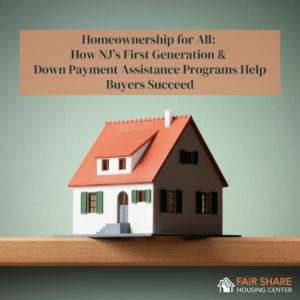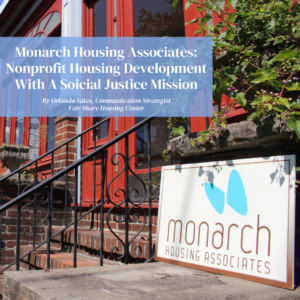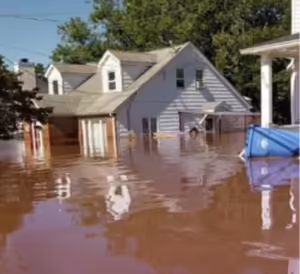Moving Affordable Housing Forward in 2023
January 18th, 2023
By Esmé Devenney
It’s the start of a new year, and two months have passed since applications opened for the Affordable Housing Production Fund (“AHPF”). The AHPF is a new $305 million dollar funding stream created in the FY23 state budget intended to accelerate affordable housing production in the state. The fund is administered by the NJ Housing Mortgage and Finance Agency and supported with American Rescue Plan dollars. The fund is anticipated to support the development of more than 3,300 affordable homes.
But even with this historic line item and commitment from state policymakers to affordable housing production, the AHPF will only fund a little more than 1% of New Jersey’s current need. Even once these homes are built, New Jersey will still be facing a huge shortage of affordable homes—we simply have more people who need affordable housing than available units. A contributing factor to this housing crisis was the non-enforcement of the Mount Laurel Doctrine from 2000 through 2015, which caused an underproduction of over 300,000 homes. Right now, there is a shortage of 217,801 rentals homes for extremely low-income people in New Jersey, with demand likely to increase in 2023. 42,500 eviction cases are backlogged since the state’s moratorium lifted on January 1st, 2022. The pressure to push through these cases exposes tenants to due process violations, elevating the risk of eviction.
New Jersey needs a long-term commitment and strategy to address the production of affordable homes. While the AHPF provides a good model for how dedicated financing can accelerate development, there is still more that needs to be done to ensure low-income New Jerseyans and Black and Brown communities have access to affordable homes.
One solution could be to utilize a steady funding stream to subsidize affordable housing development. We support strategically investing a portion of realized cannabis tax revenue in the creation and preservation of affordable homes in historically redlined communities of color—the same communities that were targeted and most harmed during the War on Drugs. Now that cannabis is legalized, it is only fair that state revenue be invested back into Black and Brown communities that were disinvested in for decades. Cannabis tax revenue could also be used to create a first-generation homeowner’s program that would provide an opportunity for those communities most harmed by cannabis prohibition to have the opportunity to purchase homes in areas where home values are increasing rather than depreciating.
Second, as laid out in Fair Share’s September 2022 report, Untapped Resources: How New Jersey Can Leverage State Financing and Land for Affordable Housing, the state should make an effort to fully enforce the Fair Housing Act. Amendments made to the Fair Housing Act in 2008 require at least 20 percent of residential units financed with state funds or developed on state owned land be reserved for low- and moderate income households. The work to pass this amendment has been done, and its enforcement would guarantee affordable home construction when housing is built with state money and on state owned land. We provide four major recommendations in our report, including a recommendation that the Governor’s Office issue guidance and direct state agencies to adopt rules that require 20 percent set-asides in state subsidized projects. In fact, the Economic Development Authority (EDA) is already doing so, having issued proposed rules for the 14 billion dollar Aspire program to construct housing with a 20 percent affordable set aside. The proposed rules include a requirement that the income and bedroom distributions for the affordable units in the projects comply with the Uniform Housing Affordability Controls, too.
In addition to new development opportunities, it’s imperative that we also protect existing affordable housing. As of December 2022, 515 public housing buildings in New Jersey have one or more health and safety deficiencies according to HUD’s most recent physical inspection report. Of those buildings, 276 have one or more critical, life-threatening issues. New Jersey would need to invest more than $2 billion to rehabilitate these buildings. The EDA’s Aspire program is another funding stream that could be leveraged to rehabilitate these buildings.
New Jersey is in the midst of a housing crisis. Increased housing needs due to population growth, combined with rising rents and for sale prices, have created a dire situation for many low-income families and communities of color in our state. Increasing the affordable housing stock, through both the production of new affordable homes and preservation of existing ones, is an essential policy solution that New Jersey must prioritize now.






